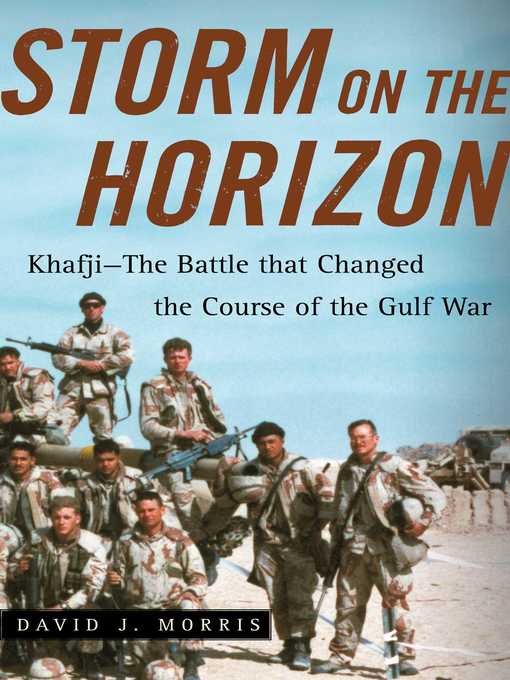
Storm on the Horizon
Khafji—The Battle that Changed the Course of the Gulf War
کتاب های مرتبط
- اطلاعات
- نقد و بررسی
- دیدگاه کاربران
نقد و بررسی

November 17, 2003
In late January 1991, during the Gulf War, the Saudi Arabian coastal city of Khafji and several U.S. Marine outposts stretching inland were overrun by a three-division Iraqi ground attack. Confusion about the strength of the enemy attack led to Marines being trapped in the city itself; confusion in communications and about location led to several "friendly fire" fratricides. The U.S.-led coalition positions and Khafji itself were eventually retaken by U.S.–supported Saudi National Guard counterattacks that proved the Saudis had a good deal to learn. So did the Marines, Morris shows, particularly about air-ground cooperation, but they also learned the serious weaknesses of the vaunted Iraqi forces (which may have influenced coalition strategy later). The real strength of the book, however, is not in its strategic analyses but in the portraits of the men on the ground, few of them above the rank of captain, derived from exhaustive interviewing by the author, a former Marine officer. Morris conveys how the fog (and smoke, dust and sand) of war looks to the people in it, while clarifying the situations for the reader, not something that most military histories manage. Many of the men were almost as isolated as in pre-radio days, but Morris shows their training to have kicked in purposefully.

February 15, 2004
This ground-level view of the 1991 Gulf War's Battle of Khafji comes hard on the heels of Anthony Swofford's highly successful Jarhead. In a work that is often insightful but frequently lacking in objectivity, Morris, a former marine, focuses on the U.S. Marine Corps and the dominant role it played. The author shows the units involved from the time of deployment to the Gulf up to the battle's end. Morris highlights the confused and slapdash nature of the initial months of the Gulf deployment, excelling in depicting the confusing and intense nature of combat, even on the modern push-button battlefield. His portrayals of "friendly fire" mishaps and the paralyzing effect those incidents had on the battle's latter stages are masterly. In the initial portion, however, the clich s of hatred toward journalists, high-ranking officers, and our Arab allies and other branches of the armed forces appear too often without clear indication if they are the opinions of the author or his subjects. Morris shows a great deal of talent as a military historian but perhaps needs a subject from which he can distance himself. Recommended for large public libraries and those with active military collections.-Brian K. DeLuca, Avon Lake P.L., OH
Copyright 2004 Library Journal, LLC Used with permission.

February 15, 2004
Former marine officer Morris offers a detailed account of a crucial but little-known battle of the first Gulf War. Amid the general uncertainty of Desert Storm, Saddam Hussein made an attempt to capture the city of Khafji, and thereby undercut American resolve. Morris covers every aspect, from the initial deaths by friendly fire to the recapture of the town by Arab forces and their marine advisors. His narrative style is excellent, making one feel as if one were there. He also covers the inter- and intra-unit squabbles among the fighters and shows the effects they had on the battle's outcome. Finally, he emphasizes that the latest generation of American weapons did, in fact, work extremely well but did not eliminate the need for good training of personnel or the problems of target identification. Consider this one of the better books on small-unit action in the first Gulf War.(Reprinted with permission of Booklist, copyright 2004, American Library Association.)

























دیدگاه کاربران